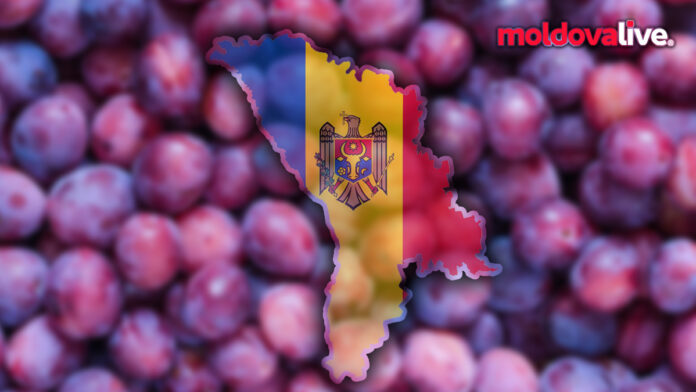Moldovan plums sell in Germany at average and below-average prices. Experts explain this positioning by the lack of infrastructure in the country, which does not allow the creation of added value in fruits. The statements were made during the “Consens National” program on Rlive TV by Iurie Fala, executive director of the Association of Fruit Producers and Exporters “Moldova-Fruct,” and economic expert Veaceslav Ionita.
Iurie Fala says that Moldovan producers sell plums cheaper because not all of them can offer the standard demanded on the German market due to the lack of a post-harvest chain. Another explanation is that the varieties grown in the Republic of Moldova are less competitive than those grown in other countries.
“If we compare ourselves with Turkey, Italy, or Spain, then the infrastructure that creates added value for the fruit, I mean sorting, grading, and packing, is very poorly developed in our country. Our partners have to do this procedure when we export. We sell in bulk, and they pre-pack them,” said the executive director of the Association of Fruit Producers and Exporters “Moldova-Fruct.”
FOR THE MOST IMPORTANT NEWS, FOLLOW US ON TWITTER!
Germany ranks among the biggest importers of Moldovan plums alongside Romania and Poland. Calculations made by economic expert Veaceslav Ionita show that Moldova ranks third in fruit exports to this country after Spain and Italy.
“The Germans imported fruit from Turkey for 3.2 dollars, from South Africa at 2.4 dollars, from the Netherlands at 2.2 dollars, and the lowest price was from the Republic of Moldova – one dollar per kilogram. It shows that we are price-competitive. We still need to work on quality. We have growth potential, but the state needs to intervene to create better conditions for fruit exports,” added Veaceslav Ionita.
Among the countries that bought plums from Moldova last year were Austria, which offered a price of around 90 cents, and the Netherlands and Italy, which gave around 80 cents. The list includes Croatia, Belarus, Latvia, and Poland, which imported Moldovan plums at around 60 cents per kilogram. Russia offered 50 cents and Romania 43 cents.


